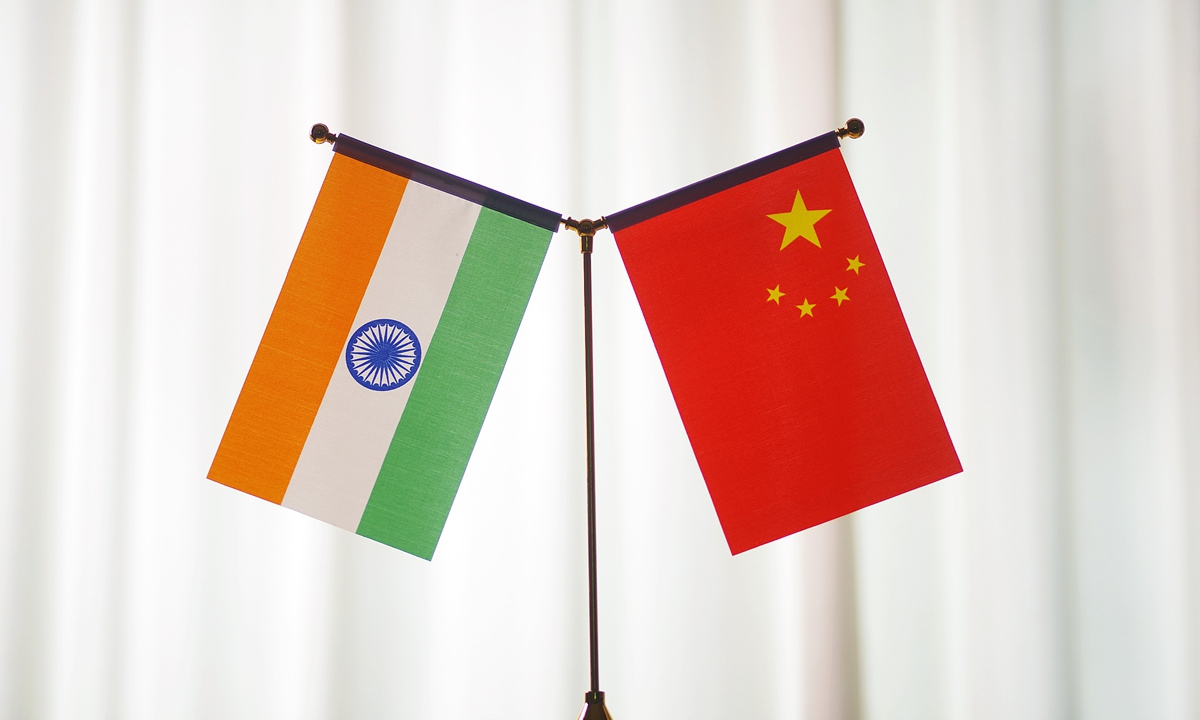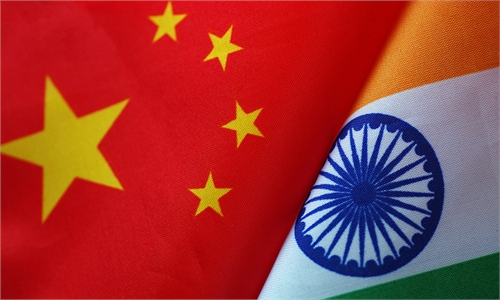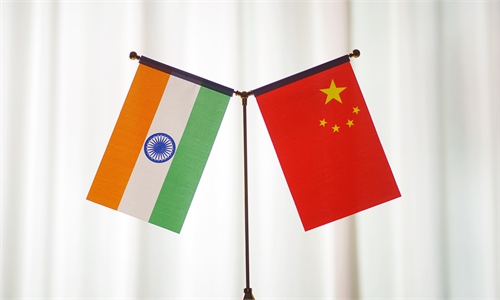India should work with China to solve bilateral difficulties amid recent positive signals: experts

China India Photo:CFP
Recently, a series of positive signals have been released in China-India relations including the "constructive and forward-looking" 16th Corps Commander-level talks held earlier this month.
However, Indian media outlets have been hyping that India is preparing to deploy a new batch of anti-aircraft missiles in the northern border region with China, claiming the move is aimed at countering pressure from China.
As the border issue has long been left hanging in the air, Indian media organizations have always made such wrong claims amid important contacts between the two sides, or deliberately inflated tensions, which is not surprising, experts said. They urged New Delhi to work with Beijing in a more pragmatic way to solve bilateral difficulties.
On Thursday, Senior Colonel Wu Qian, spokesperson for China's Ministry of National Defense, said at a regular press briefing that during the 16th round of Corps Commander-level talks between India and China, the two sides conducted discussions in a constructive and forward-looking manner and reached four points of consensus.
First, the two countries agreed to adhere to political guidance and earnestly implement the important consensus reached by the leaders of China and India; second, they agreed to maintain the momentum of recovery in bilateral relations with the overall situation kept in mind; third, they agreed to effectively manage differences and safeguard security and stability in border areas until the issue is resolved; and fourth, they agreed to maintain communication and dialogue and reach a solution acceptable to both sides as soon as possible, according to Wu.
The situation in the China-India border area remains stable on the whole, and the two sides have never stopped communicating through military and diplomatic channels, Wu noted.
According to Indian news outlet The Print, the 16th round of Corps Commander-level talks between India and China began on July 17 morning with both sides looking to ease the military standoff at the border. The talks were held on the Indian side of the Chushul-Moldo border meeting point.
The previous talks were held on March 11, where China and India carried forward their discussions from the previous round on January 12 for the resolution of the relevant issues along the Line of Actual Control in the Western Sector.
On Monday, Chinese President Xi Jinping sent a congratulatory message to Droupadi Murmu on her inauguration as President of the Republic of India, the Xinhua News Agency reported. Xi said that he attaches great importance to China-India relations, and stands ready to work with Murmu to enhance political mutual trust, deepen practical cooperation, properly handle differences, and push bilateral ties forward on the right track, according to Xinhua.
Also, another positive signal could be a meeting this month between senior diplomats of the two countries. Indian newspaper The Hindu reported that External Affairs Minister Subrahmanyam Jaishankar is likely to have a second meeting this month with Chinese State Councilor and Foreign Minister Wang Yi during the Shanghai Cooperation Organization (SCO) foreign ministers' meeting in Tashkent, Uzbekistan, which is being held on Thursday and Friday.
Despite the good atmosphere during official exchanges, Indian media outlets have recently sensationalized the "frequent activity of Chinese fighter jets" and India's potential deployment of a new batch of S-400 anti-aircraft missiles along the China-India border.
The Times of India reported on Monday that India's capability to detect and destroy hostile fighters, strategic bombers, missiles and drones at long ranges will get another major boost when a new squadron of the S-400 Triumf surface-to-air missile systems becomes operational along the northern borders with China in the next two to three months.
It's not surprising to see such wrong remarks by some India media, which aimed to purposely overstate China-India border tension every time China and India hold military talks or have an important contact, Zhao Gancheng, director of the Center for Asia-Pacific Studies at the Shanghai Institute for International Studies, told the Global Times on Thursday.
Zhao warned that India's possible deployment of the second batch of S-400 missiles could bring negative effect on bilateral ties.
Zhao pointed out that a sensible Indian government should figure out a way to reach peace and cooperation with Beijing based on mutual trust.
Given the unstable international landscape and India's domestic problems such as devaluation, inflation and a rebound of COVID-19, a stable and controllable China-India relationship and a friendly-neighbor environment is in line with India's interests, Lan Jianxue, director of the Department for Asia-Pacific Studies at the China Institute of International Studies, told the Global Times on Thursday.
Despite the difficulties in China-India relations in recent years, the common ground between the two countries in major regional and global affairs remained, which has become a light in bilateral relations, Lan said.
Meanwhile, the expert warned that the relationship between the two countries should never be mired in a dangerous state of "strategic drift," but should control differences, focus on the consensus and common interests to achieve their respective development and revitalization, and inject positive energy and stability into a volatile international environment.




